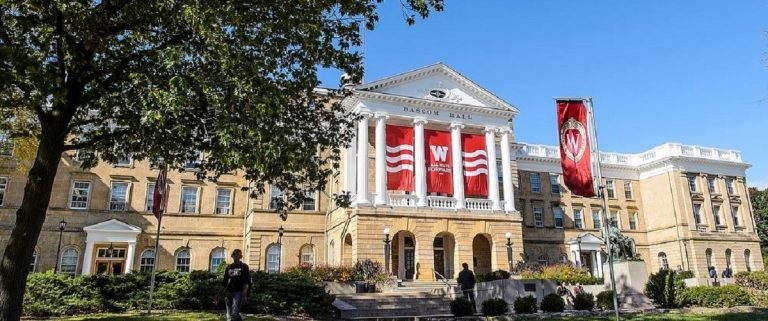
In mid-March, a survey released by the American Association of Collegiate Registrars and Admissions Officers (AACRAO) shows nearly 40 percent of universities in the United States are reporting a decline in applications from international students.
But one university is standing out as an exception to this – University of Wisconsin-Madison (UW).
The university in the US Midwest is bucking the national trend, thanks to growing interest from Chinese and Indian students overseas, as well as them joining the Common Application system, which makes it easier for people to discover and apply to UW.
“Things have changed a bit,” said Akshat Raika, an incoming freshman from central India told Star Tribune.
Akshat said:
“After visiting UW and talking to people in Madison, my worries are very less. People were very friendly and helpful.”
UW received an additional 900 overseas application this year to join its Fall 2017 intake, up 14 percent from last year. The university also reported an increase of five percent in enrollment deposits.
UW’s increased intake comes in the wake of US universities experiencing what is known as the “Trump Effect”, which in international education circles means the unwelcoming vibe President Donald Trump’s government is unwittingly sending to prospective students from abroad.
The survey found the biggest decline in interest to study in the US is among those from the Middle East, a region targeted by the travel bans imposed by the Trump administration earlier this year. The ban dictated travellers from these seven countries – Iran, Iraq, Libya, Somalia, Sudan, Syria, and Yemen – would be refused entry into the US.
The redrafted executive order later dropped Iraq from the list, as well as green-card holders or anyone inside the US with a valid visa.
However, regardless of its development in US courts now, students report they are still spooked by the travel ban as they fear it may expand to include more countries, the survey found.
But to Kris Olds, a geography professor at UW who studies global higher education, the quality and price of American universities still make the country a popular study destination, despite the current political climate.

UW stands strong in the face of the Trump Effect. Source: Facebook
Olds’ observation seems to hold water, at least among prospective students from China, the dominant country of origin for international students in the US and UW.
The annual Report on Chinese Students’ Overseas Study last month showed half the number of Chinese students planning to study abroad say the US remains their top choice, up from 46 percent last year.
Education level, overall national power and national culture remain the key determinants for Chinese students when deciding which country to study in. Only seven percent said political events would sway their choice of overseas study destinations.
Liked this? Then you’ll love these…
Trump no obstacle for Chinese students going to US schools
US university lends hand to international students affected by #MuslimBan







